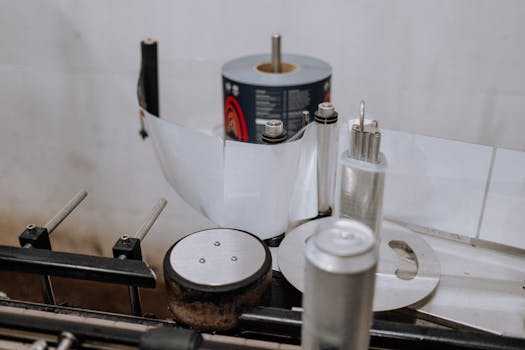
**
Are you one of the millions who swear by protein powder to build muscle and boost fitness? Think again. A growing number of health-conscious individuals are re-evaluating their protein powder intake, prioritizing gut health over gains, and experts are taking notice. This shift isn't about abandoning protein altogether, but rather a recognition of the complex relationship between protein sources, gut microbiome, and overall wellness. This article delves into the reasons behind this trend, exploring the potential drawbacks of certain protein powders and offering expert insights into healthier alternatives for optimizing gut health and achieving fitness goals.
The Gut-Protein Paradox: Why Your Gut Might Be Rebelling
For years, protein powder has been a staple in the fitness world, lauded for its ability to build muscle mass, support weight loss, and enhance athletic performance. Whey protein, casein protein, soy protein, and plant-based options like pea and brown rice protein have dominated the market. However, a burgeoning awareness of the gut microbiome – the trillions of bacteria residing in our digestive tracts – has cast a new light on the long-term effects of these popular supplements.
Many protein powders, particularly those heavily processed or containing added sugars and artificial sweeteners, can disrupt the delicate balance of the gut flora. This imbalance, known as dysbiosis, can manifest in various ways, from bloating and digestive discomfort to more serious issues like irritable bowel syndrome (IBS), leaky gut syndrome, and even autoimmune disorders.
The Culprits: Common Protein Powder Issues and Their Impact on Gut Health
Artificial Sweeteners: Many protein powders contain artificial sweeteners like sucralose or aspartame, which have been linked to gut dysbiosis and potential negative impacts on blood sugar regulation. These sweeteners can disrupt the gut microbiome's composition, leading to inflammation and digestive problems.
Additives and Fillers: Some protein powders contain fillers, artificial colors, and other additives that are not easily digested. These can irritate the gut lining, contributing to bloating, gas, and inflammation.
Lactose Intolerance: Whey protein, derived from milk, can trigger digestive distress in individuals with lactose intolerance, resulting in symptoms such as diarrhea, gas, and cramping.
Undigested Proteins: The quality and type of protein matter. Some poorly processed proteins can be difficult to digest, leading to incomplete breakdown and potential gut inflammation.
The Rise of Probiotics and Prebiotics for Gut Health
The shift away from certain protein powders is fueled by increasing interest in supporting a healthy gut microbiome through the intake of probiotics and prebiotics.
Understanding the Probiotic-Prebiotic Powerhouse
Probiotics: These are live microorganisms, primarily bacteria and yeasts, that confer health benefits when consumed in adequate amounts. Probiotic-rich foods like yogurt, kefir, and sauerkraut, or supplements, can replenish beneficial bacteria in the gut, improving digestion and immune function.
Prebiotics: Unlike probiotics, prebiotics are non-digestible food ingredients that act as "food" for beneficial bacteria. They promote the growth and activity of probiotics already present in the gut, further enhancing gut health. Prebiotic-rich foods include bananas, onions, garlic, and asparagus.
Many experts now recommend incorporating these into your diet before reaching for protein powder, particularly if you experience digestive discomfort after consuming it.
Expert Opinions on Protein Powder and Gut Health
We spoke with leading gastroenterologists and registered dieticians to gain a deeper understanding of the current thinking around protein powder and gut health. The consensus? Not all protein powders are created equal.
Dr. Anya Sharma, a gastroenterologist specializing in gut health, emphasizes the importance of choosing high-quality protein powders that are minimally processed and free of artificial additives. "Look for powders with high protein content and minimal added ingredients," she advises. "Read the labels carefully and prioritize organic, grass-fed options whenever possible."
Registered dietitian, Sarah Miller, highlights the significance of a balanced approach. "While protein is crucial for muscle building and overall health, it shouldn't come at the expense of gut health," she explains. "Prioritizing whole foods, including those rich in probiotics and prebiotics, forms the foundation of a healthy gut. Protein powder should be considered a supplement, not a replacement for whole food sources of protein."
Finding the Right Balance: Optimizing Protein Intake and Gut Health
The key takeaway isn't to completely eliminate protein powder from your diet but to adopt a more informed approach. This involves:
Choosing high-quality protein powders: Opt for minimally processed powders with minimal added ingredients, such as those derived from grass-fed whey, organic pea protein, or brown rice protein.
Introducing probiotics and prebiotics: Incorporate probiotic-rich foods and prebiotic-rich foods into your daily diet. This can significantly improve gut health and support the absorption of nutrients from protein and other food sources.
Listening to your body: Pay attention to how your body responds to different protein sources. If you experience bloating, gas, or other digestive discomfort after consuming protein powder, consider switching brands or sources or consult a healthcare professional.
Gradually introducing protein powder: Start with a small amount and gradually increase your intake, allowing your body to adjust.
The Bottom Line: A Holistic Approach to Health and Fitness
The shift away from certain protein powders reflects a broader movement towards a more holistic and personalized approach to health and fitness. By understanding the intricate relationship between protein, gut health, and overall well-being, individuals can make informed choices that support both their fitness goals and their long-term health. Prioritizing gut health through a balanced diet rich in whole foods, probiotics, and prebiotics, and choosing high-quality protein powders judiciously, represents a powerful step towards achieving optimal health and wellness. Remember to always consult with your doctor or a registered dietitian before making significant changes to your diet, especially if you have pre-existing health conditions.




















